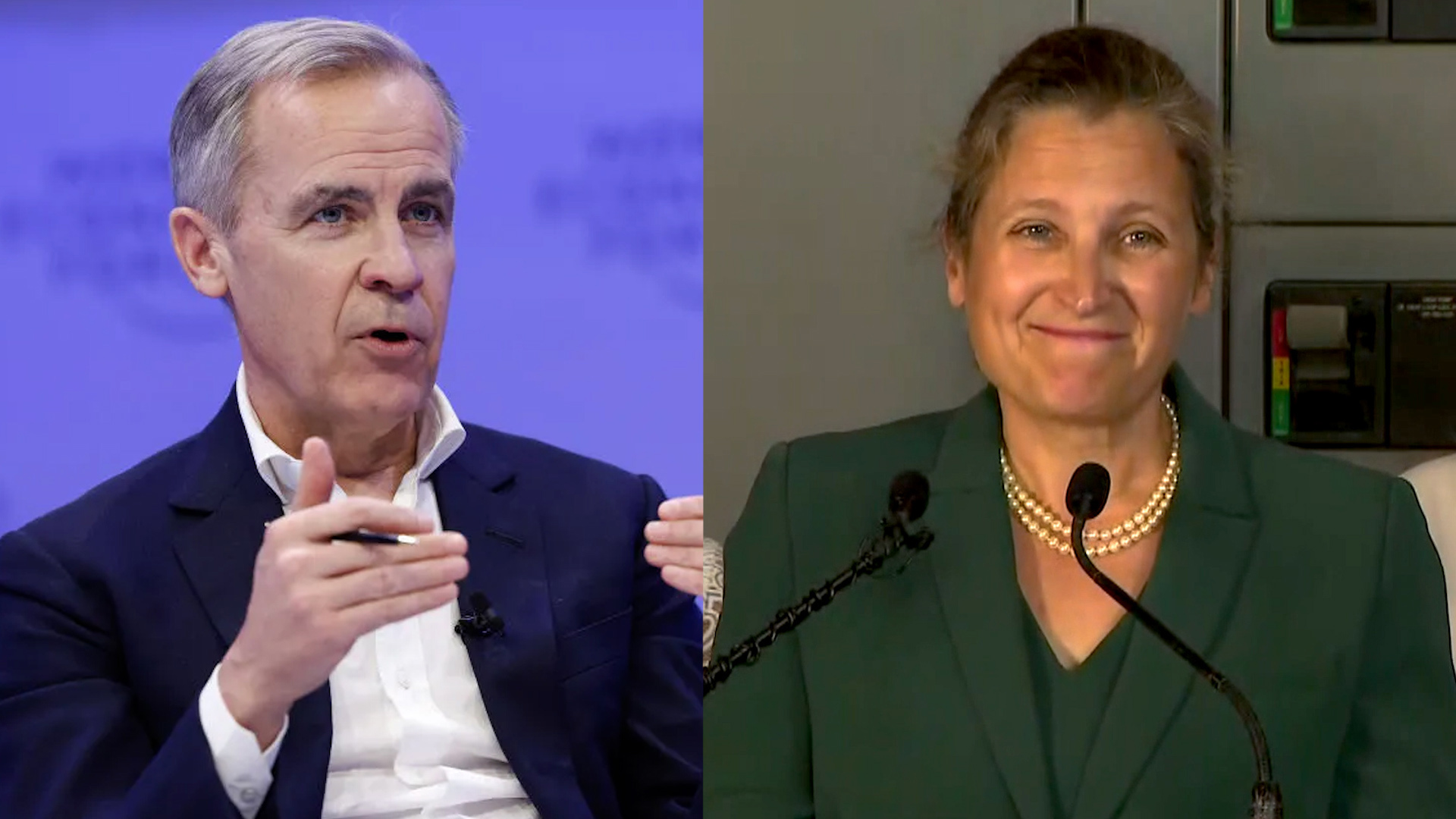Generational Economic Change: Carney's Bold Promises

Table of Contents
Carney's Vision for a Sustainable Future
Mark Carney, a prominent figure in global finance, has championed a vision for a sustainable future deeply intertwined with economic prosperity. His proposals go beyond traditional economic models, integrating environmental and social considerations as central pillars of long-term economic planning.
Tackling Climate Change as an Economic Imperative
Carney strongly advocates for viewing climate change not just as an environmental crisis, but as a profound economic one. He emphasizes the urgent need to integrate climate considerations into all aspects of long-term economic planning, transitioning towards a green economy.
- Green investments: Incentivizing investments in renewable energy, sustainable infrastructure, and climate-resilient technologies.
- Carbon pricing mechanisms: Implementing effective carbon pricing systems, such as carbon taxes or cap-and-trade schemes, to internalize the environmental costs of carbon emissions.
- Sustainable finance: Promoting the growth of sustainable finance, encouraging responsible investing practices and directing capital towards environmentally friendly projects. This includes a significant push for ESG (Environmental, Social, and Governance) investing.
Addressing Income Inequality Across Generations
A core element of Carney's vision is tackling the growing income inequality between generations. This involves addressing the intergenerational wealth transfer and promoting greater economic mobility.
- Progressive taxation: Implementing progressive tax systems that ensure fairer distribution of wealth and reduce the tax burden on lower and middle-income families.
- Intergenerational equity policies: Exploring innovative policies designed to create a more equitable distribution of resources across generations, such as targeted investments in education and social safety nets for younger generations.
- Wealth redistribution mechanisms: Investigating mechanisms to address historical inequalities in wealth accumulation and ensure fairer access to opportunities for all. This could involve wealth taxes or other progressive taxation policies.
Investing in Human Capital for Future Growth
Carney stresses the crucial role of human capital investment in securing future economic prosperity. This entails equipping future generations with the skills and knowledge needed to thrive in a rapidly changing workforce.
- Technological literacy: Investing heavily in education and training programs that equip individuals with the skills needed to navigate the digital economy.
- Lifelong learning initiatives: Creating frameworks for continuous learning and reskilling throughout an individual's career, enabling adaptation to evolving job markets.
- Targeted workforce development: Focusing on skills development programs tailored to the needs of specific industries and sectors, addressing the skills gap and preparing the workforce for the future.
Challenges and Criticisms of Carney's Plan
While Carney's proposals are ambitious and forward-thinking, their implementation faces significant hurdles.
Political Feasibility and Implementation
The political landscape presents substantial obstacles to the implementation of such sweeping reforms.
- Political resistance: Powerful vested interests may oppose policies that threaten their existing power or profitability, leading to strong political opposition.
- Budgetary constraints: Financing these ambitious initiatives requires substantial public investment, putting pressure on already strained government budgets.
- Regulatory hurdles: Implementing new regulations and policies often involves navigating complex bureaucratic processes and overcoming regulatory hurdles.
Economic Risks and Unintended Consequences
Implementing radical economic change carries inherent risks.
- Inflationary pressures: Some policies, such as increased government spending or carbon taxes, could potentially lead to inflationary pressures.
- Market volatility: Significant economic reforms can create uncertainty in financial markets, potentially leading to increased volatility.
- Impact on specific industries: Certain sectors might face challenges adapting to the new regulatory environment, potentially leading to job losses or economic disruption in the short term.
Long-Term Implications of Generational Economic Change
Carney's vision, if successfully implemented, will have profound long-term implications.
The Future of Work and the Changing Labor Market
The proposals could significantly reshape the future of work.
- Automation and job displacement: Addressing the challenges of automation and potential job displacement through reskilling initiatives and social safety nets.
- Gig economy and income instability: Mitigating the risks associated with the rise of the gig economy by ensuring fair wages, benefits, and worker protections.
- Remote work and its impact: Adapting labor laws and regulations to account for the increasing prevalence of remote work and its implications for employee well-being and productivity.
Intergenerational Cooperation and Social Cohesion
The success of these changes hinges on intergenerational cooperation.
- Building consensus: Facilitating dialogue and collaboration between different generations to build consensus around the necessary reforms.
- Shared responsibility: Promoting a sense of shared responsibility for the future, ensuring that all generations contribute to the success of these initiatives.
- Promoting generational equity: Creating policies that promote fair and equitable outcomes for all generations, fostering a sense of social cohesion and shared prosperity.
Conclusion
Mark Carney's proposals for Generational Economic Change represent a bold attempt to address the critical economic challenges facing our world. While the path to implementation is fraught with challenges, the potential benefits – a more sustainable, equitable, and prosperous future for all generations – are immense. His emphasis on sustainable finance, tackling income inequality, and investing in human capital offers a compelling vision. Understanding the potential risks and fostering intergenerational cooperation are crucial for navigating the transition. We urge readers to delve deeper into Carney's proposals and engage in the crucial conversation surrounding Generational Economic Change, actively shaping the future of our shared economic destiny. Explore further resources and contribute to the dialogue – the future of our economies depends on it.

Featured Posts
-
 Twelve Years In The Making Canelo Vs Crawford And The Post Mayweather Era
May 05, 2025
Twelve Years In The Making Canelo Vs Crawford And The Post Mayweather Era
May 05, 2025 -
 Deutschland Sucht Den Superstar Esc Quotenanalyse Des Ersten Vorentscheids 2025
May 05, 2025
Deutschland Sucht Den Superstar Esc Quotenanalyse Des Ersten Vorentscheids 2025
May 05, 2025 -
 Berlanga Prioritizes Munguia And Charlo Over Plant Fight
May 05, 2025
Berlanga Prioritizes Munguia And Charlo Over Plant Fight
May 05, 2025 -
 Maks Ferstappen Stal Ottsom Predstavlenie Docheri Lili
May 05, 2025
Maks Ferstappen Stal Ottsom Predstavlenie Docheri Lili
May 05, 2025 -
 Analyzing The Grand Theft Auto Vi Trailer Frame By Frame
May 05, 2025
Analyzing The Grand Theft Auto Vi Trailer Frame By Frame
May 05, 2025
